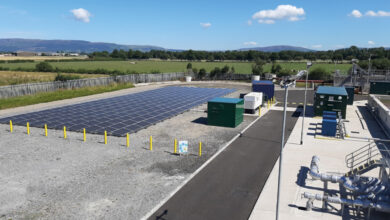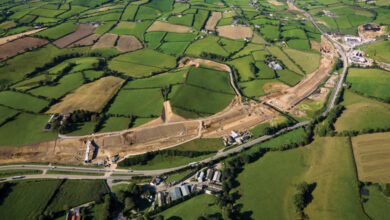Planning for Regeneration
 Eight weeks to influence 15 year plans
Eight weeks to influence 15 year plans
When planning powers were devolved to local councils in Northern Ireland on 1 April last year, unfortunately regeneration powers did not follow.
However, under the Planning Act 2011, each of the 11 new councils was given new powers to set local planning policy, through the preparation of new Local Development Plans (LDPs).
This process will allow each council to set its own land use strategy and development policies within its district. In effect, a localised plan with a focus on the distinctive needs and opportunities of each area, including regeneration requirements.
In some cases it will be the first time planning officers have revised these plans in a generation; in others it is an opportunity to hit reset on previously controversial or disputed projects.
Each LDP will literally influence the shape of our landscape over the course of the next generation. Therefore in the coming months and years, as proposals take shape and solidify, it is becoming increasingly important for those involved in regeneration to understand their developing LDP and engage in influencing it.
What is a Local Development Plan?
An LDP guides the future use of land and informs developers and communities of the policy framework against which planning applications will be determined. In addition to allocating land for specific uses and setting policy for determining planning applications, the LDP should be clear on how it will facilitate positive regeneration of our towns and cities.
How do I influence my LDP?
Once adopted, the plan will be in place for up to 15 years. It is therefore vital that interested parties engage early, and at key points in its development.
Engagement in the plan-making process takes the form of submissions and representations to the council’s Local Development Plan team, and interaction with elected representatives and communities. Having evidence to support your point of view is essential.
When to engage?
Across Northern Ireland, the new local planning authorities are in the early stages of preparing their LDPs. Formal consultation on a number of emerging plans has already begun.
Each council’s plan should be in place across the region within the next four years, although some will make progress faster than others.
Councils have a statutory duty to consult with the local community, stakeholders, developers and statutory bodies.
Whilst there are key statutory points which provide opportunities to comment upon the proposals put forward by the councils, it is important that communities, developers, promoters and landowners engage early in the process in order to inform the proposals.
In preparing their LDP, each council will be required to prepare a supporting evidence base to ensure that their proposals are ‘sound’.
One part of the evidence base could be a ‘call for sites’ exercise through which the council will assess the availability of land for regeneration proposals. The council will also need to demonstrate that they have sufficient developable land to deliver the future housing and employment needs in their district.
The time to engage is now as most councils are preparing their evidence base with Preferred Options expected to be published from October 2016 onwards.
Turley has over 20 years’ experience in the plan-making process right across Northern Ireland. If you are interested in learning more about the Local Development Plan process and would like to find out how Turley can help you, please get in touch.
Turley, Hamilton House
3 Joy Street, Belfast BT2 8LE
T: 028 9072 3900





